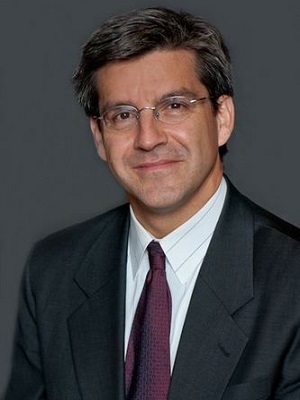Without needed reforms, the state's pension crisis will continue to cost Illinois in ways no one wants. | File photo
Without needed reforms, the state's pension crisis will continue to cost Illinois in ways no one wants. | File photo
Though village trustees say it isn't, last fall's approved 375 percent pay raise for Orland Park's mayor bears some of the hallmarks of a pay spike for a larger pension, which the vice president of a Chicago-area think tank says taxpayer should be wary of.
"I think taxpayers need to be very cautious about pay raises like this," Ted Dabrowski, vice president of policy at the Illinois Policy Institute, said during a Will County Gazette telephone interview. "Because very often, when there is a pay raise like this, the pay is being spiked for pensions."
What is called "pension spiking" or "pension padding" is a common way that Illinois public employees increase the amount they will receive in retirement. While there are several ways to game that system, one common way is for an employee to receive a pay hike the last few years before retirement, though their own contributions were made during years at the lower pay rate. Since their pension is based on their last four years of service, pension spiking allows the retiree to receive more in retirement -- at times substantially more -- than was funded over the course of their service.

Ted Dabrowski, vice president of policy at the Illinois Policy Institute
| Photo courtesy of the Illinois Policy Institute
"That makes it very expensive for the taxpayers who have to fund those pensions," Dabrowski said.
Trustees in Orland Park have said their decision in October to give that village's Mayor Dan McLaughlin a $110,000-a-year boost in pay is not an example of pension spiking, though McLaughlin is expected to retire in a few years. McLaughlin has been Orland Park's part-time mayor for 23 years.
On Oct. 17, the cities board voted to raise McLaughlin's pay from $40,000 to $150,000 starting in May. That vote came despite the standing-room only crowd, reportedly generated by robocall, there to protest the raise. The raise will guarantee McLaughlin a similar amount in pension benefits after he retires, but trustees say the raise will actually save the village about $700,000 a year. They point to a consultant's report that recommended the village hire an additional full-time assistant village manager and an economic development director. The village will save money by switching their part-time mayor to full time and allowing him to take on those duties, the trustees say.
Orland Park, with a present annual budget of $148 million and 58,000 residents, also has budgeted a salary of $177,000 in 2017 for a professional village manager who runs the village with an assistant village manager who receives $134,540. Expanding the role of Orland Park's mayor is expected to cost $517,000 in salary and retirement benefits over the next four years, while hiring two new administrators recommended in the consultant's report would exceed $1.2 million in salary and benefits, the trustees maintain.
McLaughlin, former executive director of Plumbing Council of Chicagoland and the Builders Association’s current executive director, has the experience needed for the expanded role, the trustees say, adding that the pay raise ordinance will have to be renewed ever four years or will revert back to $40,000. That indicates the spike in McLaughlin's pay is for McLaughlin alone and won't necessarily be passed on to any future Orland Park mayor.
However, McLaughlin is not the only public employee in the state to receive a substantial increase in pay in the final few years of public service. "What's happened in Orland Park is something that's happening all too often across the state," Dabrowski said. "Spiking is still happening despite the constant and unsustainable cost it places on taxpayers."
While not the only cause of the state's financial woes, Illinois' pension crisis is one of the highest profile issues with which the state is failing to deal. Illinois' public pension problems are the worst in the nation, according to Bloomberg. By 2014, Illinois' pension shortfall was more than $100 billion and partisan bickering in Springfield yielded no improvement. Illinois’ pension debt increased to $130 billion in 2016, up from $111 billion in 2015, according to an Illinois Policy Institute report, which cites the Commission on Government Forecasting and Accountability.
Abuses such as pension spiking are contributing to that crisis, Dabrowski said. "This is why the state needs to move away from pension plans as they exist today and adopt self-managed plans, such as 401(k) plans," he said.
Without needed reforms, the state's pension crisis will continue to cost Illinois in ways no one wants, Dabrowski said.
"Pension costs are crowding out spending in everything from schools to public safety to road repairs," he said. "If we don't implement these needed reforms, more people will leave Illinois for places with more opportunities, lower taxes and a better environment."



 Alerts Sign-up
Alerts Sign-up